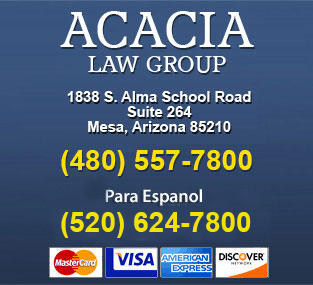(The content below was transcribed from an interview done with Acacia Law. We think you’ll find it much easier and more enjoyable to read this way.)
Interviewer: I’ve heard there’s a three strikes law in Arizona for once you’ve been charged with a crime or, sorry, convicted of a crime for the third time, all of a sudden your sentencing changes and your whole situation changes. Is that true? What can you say about that?
Acacia Law: It’s interesting. A lot of people actually look at the three strikes law as sort of an urban myth. The three strikes law was something that sort of came into fruition in the 1980s, and essentially what they were doing was some states were saying that if you had three felony convictions, the third felony conviction could cause you to be placed in imprisonment for life. So, it became this sort of balloon of controversy and concern amongst well, everyone from judges to legal defense attorneys as well as defendants. The bottom line is that it’s not really the way that people perceive it, not in Arizona.
Essentially what happens in Arizona is that they have a very simple type of structure for sentencing. They don’t count once you’ve got two or more felony convictions; you are essentially in a particular sentencing range. It certainly does not mean that you are going to be in prison for life.
Interviewer: Okay.
Acacia Law: A lot of people are under the misunderstanding that the three strikes means that the state or the Federal entity has given up on you and has basically sentenced you to prison for good, and that simply is not the case. It really is an urban myth. People contact me all the time. They are completely in panic because they have been charged with their third felony, but again the three strike law is not really a law per se on the books. It’s really, how the code works is, for the state code it’s very simple. If you have two or more prior felony convictions, which are called historical priors, then you will be given an enhanced sentencing range. It does not mean you will be going to prison for life or the next 25 or 30 years. The average sentence, even on someone with two or more felony convictions, rarely exceeds six to eight years.
Interviewer: Wow – that is an urban myth then.
Acacia Law: Again, it’s something that I know a lot of people worry about and rightly so, to the extent that you will get an enhanced sentence. But part of what my job is and what I do is basically you can work arrangements where the state will not allege certain priors so that you actually fall underneath the wire. So, for example, if you had a client who had two prior felony convictions, I’ve been able to negotiate plea agreements where the state does not allege that the person had either one or even two felony convictions and then they can be sentenced just like a first time offender, which makes a huge difference in terms of how they are treated under the law.

Interviewer: How can you trigger that to happen? That sounds amazing, but how do you do that?
Acacia Law: Well, basically the way I handle all of my cases is in a fundamental format, and it doesn’t matter whether the person has two or more felonies or not. Essentially, the way I prepare to negotiate in a case like that, where someone has prior felony convictions is that I prepare every case as if I am going to trial. The reason I do that is because if you do not force the state to take your case seriously by causing them to expend resources, they have no incentive whatsoever to give you any sort of reasonable plea offer. If you don’t make them work and you don’t show or establish any holes or flaws in their cases, then they have no incentive whatsoever to help you.
A lot of times, unfortunately, what happens, especially when people have public defenders that are overworked and under paid, is they simply don’t have the time to expend the resources necessary to work up every case that they have on their docket. In essence what I do is I create leverage for the client because the state knows, and since I’ve been doing this for 24 years, they know for a fact, that if I’m not satisfied with the plea offer, or if I think that it is unjust, then I am absolutely taking the case to jury trial.
Acacia Law: That gives you leverage. That’s the type of leverage that will get you to have the prosecutor re-staff the case, usually with the supervisor and come back with an offer such as the one that I mentioned, wherein you may have one or two prior felony convictions, but they won’t be alleged, so that you will have a significantly reduced sentencing range.
Interviewer: That’s a huge benefit. I’m glad you spoke about that.
Acacia Law: My pleasure


